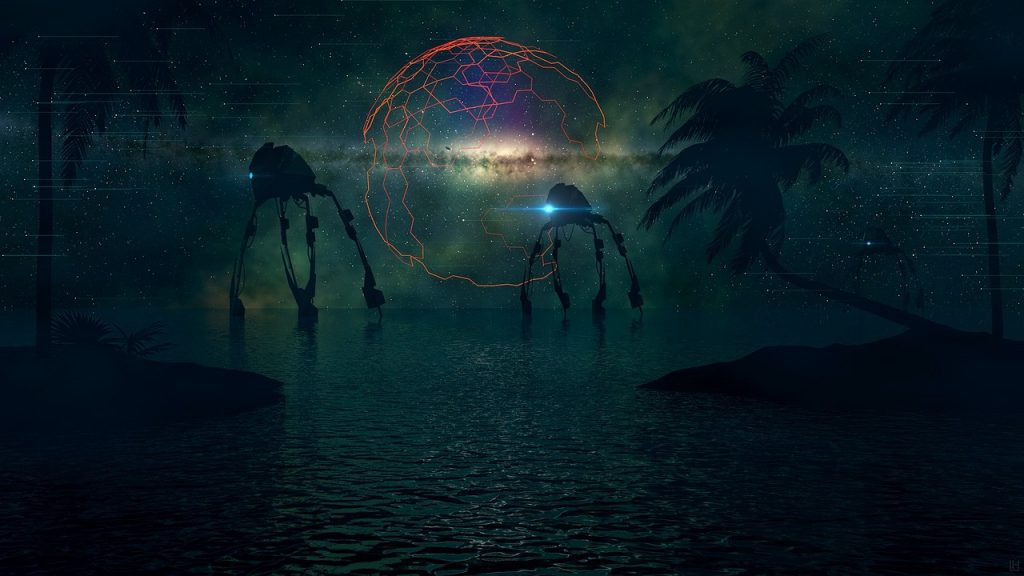
How Artificial Intelligence Will Take Over The World
Elon Musk thinks that, ultimately, AI will overtake humans and take over the planet. He predicted that by 2025, artificial intelligence would be far superior to humans in terms of wisdom.
But is it feasible? Is AI possibly ruling the future, even though these are just forecasts based on a few tech movies?
While Hollywood regularly makes science fiction films that portray AI as humanoid robots that would eventually rule the globe and subjugate humans, the development of AI technology today isn’t precisely like that or as advanced. Instead, AI has developed to offer a wide range of distinctive advantages.
Evolution of AI
IFM is only one of several AI innovators in a field that is developing quickly. For instance, AI was included in 2,300 of the 9,130 patents that IBM inventors received in 2021. Elon Musk, the man behind Tesla, donated $10 million to the non-profit research organisation OpenAI to support ongoing research. His $1 billion co-pledge from 2015 indicates that this donation is a drop in the ocean.
After an evolutionary phase that started with “knowledge engineering” and lasted for several decades, technology moved to model- and algorithm-based machine learning, with an increasing emphasis on perception, reasoning, and generalisation. AI has taken centre stage and isn’t going anywhere soon.
How will AI change industries?
Modern AI, specifically “narrow AI,” which executes objective tasks using data-trained models and typically falls into deep learning or machine learning, has already impacted practically every key industry. This has been particularly true recently due to pervasive IoT connectivity, the proliferation of linked devices, and ever-faster computer processing, which have led to enormous increases in data gathering and analysis.
While some businesses are only getting started with AI, others have used it for some time. Both of them still have a ways to go. Whatever the case, it is tough to dispute how AI affects our daily lives.
1. Education
With AI, textbooks will be digitised or currently available online. Early-stage virtual instructors support actual instructors, and face analysis measures students’ emotions to identify those who are struggling and tailor the learning environment to their unique needs.
2. Healthcare
Extensive data analysis helps to create a more accurate patient experience, diseases are more quickly and consistently recognised, virtual nursing assistants, watch patients, and drug research is sped up and simplified in the relatively untapped sector of healthcare AI.
3. Transportation
Autonomous vehicles will eventually transport us from place to place, even though developing AI for transportation may take longer.
4. Manufacturing
Robots using AI aid humans in a small number of jobs like stacking, predictive analysis, assembling, and maintaining equipment’s functionality with sensors.
5. Media
AI is already being used in journalism and will be used even more.
6. Consumer Assistance
Google is creating an AI assistant that can schedule appointments that resemble those made by humans, including those at your neighbourhood salon or doctor’s office. The AI system also understands context and distinction.
How will AI change the work?
At a lecture at Northwestern University, AI expert Kai-Fu Lee praised AI technology and its future impact while outlining its shortcomings and limitations. He gave a caution:
“Job migration will seriously impact the poorest 90% of the world, especially the lowest 50% in income or education.” How routine is the job, to put it simply? And because AI can learn how to optimise itself within routine duties, that is how likely it is that AI will replace an appointment. Separating items into bins, cleaning dishes, plucking fruit, and taking customer service calls are more quantitative, objective jobs that tend to be scripted, repetitive, and predictable. They will no longer exist in five, ten, or fifteen years thanks to AI.
The New York Times recently quoted Infosys president Mohit Joshi saying, “People are looking to get extraordinarily huge numbers.” Before this, they had gradual workforce reduction goals of five to ten per cent. Why can’t we do it with just 1% of our people? They are now asking.
On the plus side, Lee emphasised that modern AI is useless in two ways: it lacks creativity and is incapable of feeling love or compassion. Instead, it serves as “a tool to enhance human creativity.” What is his remedy? People with professions that entail repetitive or routine tasks must learn new skills to stay competitive. Amazon pays for even training for positions at other organisations.
Positive and negative aspects of AI
Every activity has both beneficial and detrimental effects. AI is no exception. Automation using artificial intelligence might have a startling positive or highly negative impact. And before making any generalisations about the long-term effects of AI on the world, these effects must be seen and carefully evaluated.
1. Positive Side
AI has several good aspects, from speeding up repetitive tasks to enhancing the efficiency of larger companies. AI’s predictive and analytical powers have proven valuable assets in many industries. Whether forecasting the weather or the stock market, AI technology’s predictive capabilities positively affect many organisations. AI is also being utilised for more important activities like space and ocean exploration, among others, in addition to data analysis and prediction.
Another factor is expanding monitoring and diagnostic techniques in the medical sector. With wearable integration, doctors can better diagnose patients, keep track of their conditions, and administer the appropriate care. The consequence is that AI enhances medical procedures while significantly reducing the cost of medical care globally.
3. Negative Side
There is always a downside to something. However, from AI preference to social media manipulation, AI has impacted society unimaginably.
The rise of AI automation has resulted in a substantial change in the current human experience. People now have more free time and are seeking new hobbies; tasks that once required human labour may now be accomplished without it. However, some people find it easier to look for new experiences, which has significant psychological and social repercussions for the world.
Final words
Robots, machine learning, and artificial intelligence are just a few of the essential technological advancement technologies available today. Unfortunately, these tools can be used correctly or badly, just like any other tool.
Therefore, rather than being concerned about these technologies’ potential, intelligence, and power, we should be more worried about how they will be used. Alexa does not obey our instructions because we are still learning to use its commands.
Therefore, even though the future is unpredictable, you can be sure that AI won’t take over the world in our lifetime.


